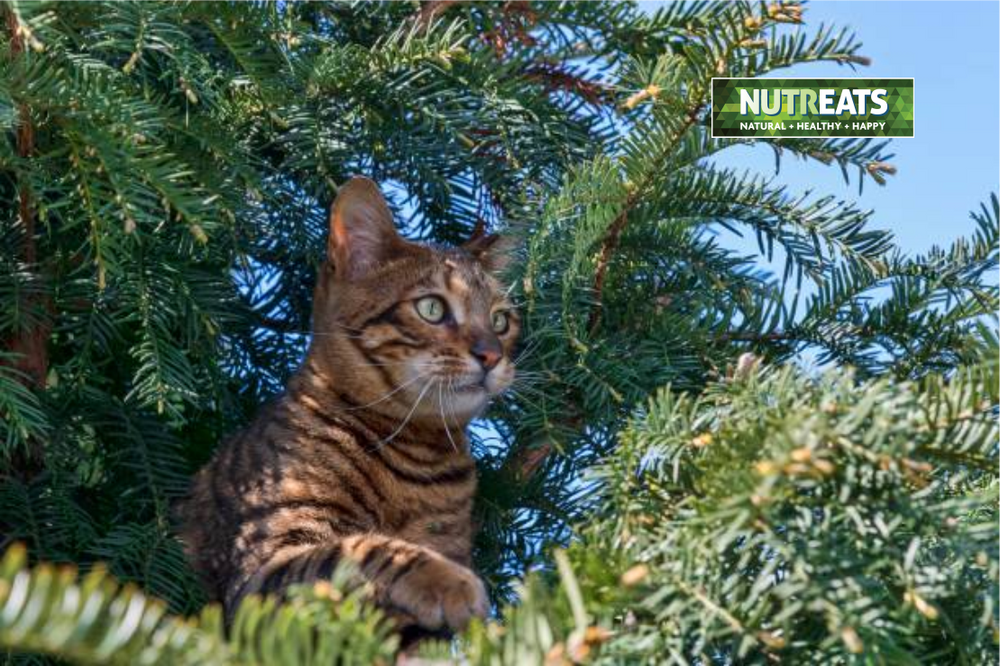The Life Stages of a Cat: From Kitten to Senior
Ben WintersCats go through several distinct life stages, each with its own unique challenges and joys.
Understanding these stages can help you provide the best care for your feline friend throughout their life.
Early Development: Kittenhood (0-1 year)
The kitten stage is a time of rapid growth and development. From birth to about six months, kittens experience significant physical and mental changes. During this period, they are highly active, curious, and playful as they learn about their environment and develop social skills.
Care Tips for Kittens
- Nutrition: Provide high-quality kitten food rich in proteins and essential nutrients to support their rapid growth.
- Socialization: Introduce your kitten to various people, animals, and environments to help them become well-adjusted adults.
- Veterinary Care: Ensure regular vet check-ups, vaccinations, and deworming treatments to keep your kitten healthy.
- Play and Stimulation: Engage in interactive play with toys to stimulate their mind and body.

Exploration and Learning: Junior (1-2 years)
Junior cats are still highly energetic and curious. This stage is crucial for reinforcing positive behaviors and continuing their socialization. They are more coordinated and agile, and their personality begins to solidify.
Care Tips for Junior Cats
- Nutrition: Continue feeding a balanced diet formulated for young cats.
- Training: Reinforce good behaviors and provide consistent training.
- Health Monitoring: Keep up with regular vet visits and preventative care.
- Enrichment: Provide plenty of toys, climbing structures, and opportunities for exploration.
Stability and Routine: Adult (3-6 years)
During the adult stage, cats typically settle into a routine and their energy levels stabilise. They are at their peak physical condition and are generally more independent.
Care Tips for Adult Cats
- Nutrition: Switch to adult cat food that meets their nutritional needs without overfeeding to prevent obesity.
- Exercise: Ensure they get regular exercise to maintain a healthy weight.
- Health Checks: Schedule annual vet visits to monitor their health and catch any issues early.
- Mental Stimulation: Continue to provide toys and activities to keep them mentally engaged.
Transition to Senior Years: Mature (7-10 years)
As cats enter their mature years, they may begin to show signs of aging. They might become less active and more prone to weight gain and other health issues.
Care Tips for Mature Cats
- Diet Adjustments: Consider switching to a diet formulated for mature cats to support their changing nutritional needs.
- Weight Management: Monitor their weight and adjust food intake as necessary.
- Regular Check-ups: Increase the frequency of vet visits to every six months to catch potential health issues early.
- Comfort: Provide comfortable sleeping areas and consider adding more litter boxes as they might have decreased mobility.
Slowing Down: Senior (11-14 years)
Senior cats often experience a decline in physical activity and may develop age-related health conditions such as arthritis, dental issues, or kidney disease.
Care Tips for Senior Cats
- Specialized Diet: Feed a senior-specific diet to support their health and manage any medical conditions.
- Health Monitoring: Schedule regular vet visits to manage chronic conditions and monitor their overall health.
- Comfort and Accessibility: Make their environment more accessible with low-sided litter boxes and easy-to-reach resting spots.
- Attention and Love: Spend quality time with your senior cat, providing gentle play and affection.
Golden Years: Geriatric (15+ years)
Geriatric cats require special care and attention. They may experience significant health issues and will need a supportive environment to ensure their comfort.
Care Tips for Geriatric Cats
- Vet Visits: Increase the frequency of veterinary check-ups to every three to four months.
- Pain Management: Work with your vet to manage pain and discomfort associated with aging.
- Comfort and Care: Provide a warm, quiet, and easily accessible space for rest. Use soft bedding and consider using ramps or steps for easier access to favorite spots.
- Hydration and Nutrition: Ensure they stay hydrated and continue to provide a balanced diet that meets their specific health needs.
End of Life Care
Quality of Life As your cat approaches the end of their life, it's important to focus on their quality of life. Monitor their comfort and well-being closely.
Support and Compassion
- Veterinary Guidance: Work with your vet to manage pain and make end-of-life decisions when necessary.
- Emotional Support: Provide comfort, love, and companionship during this time. Consider discussing your feelings with a support group or counselor.






